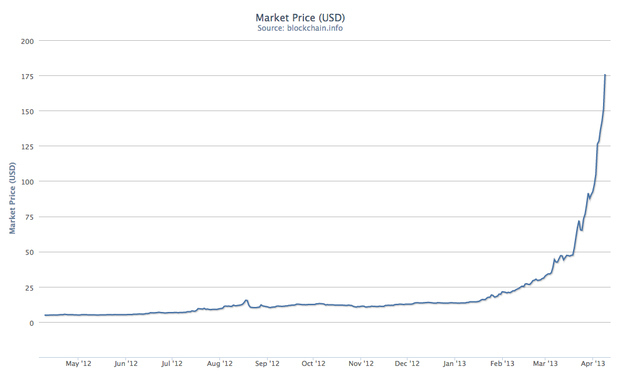Politicians aren’t solving the debt crisis, so entrepreneurs around the world are. Bitcoin, a decentralized digital currency, was created in 2009 based on an open-source p2p internet protocol. Think of it as the Napster of the international economy.
In late 2011 a bitcoin was worth $2, last week it was $180, at times reaches as high $218 per bitcoin. Now there is more than a billion dollars of bitcoins in circulation, and the number keeps growing. The chart below shows the market value (in USD) of a bitcoin over the last 12 months.
There are even stories of freshly minted bitcoin millionaires, who turned 5 grand into more than a million dollars riding the wave of distrust in traditional fiat money.
Sure it’s a bubble that might soon pop, but the more I learn about unregulated international currency like Bitcoin, Ripple, etc., the more fascinated I get with the whole concept of a system of exchange that lives outside government.
Really it’s all psychological. Do people trust the government anymore? No, and that’s because the government has a face to distrust. A computer program holding all our money is sterilized. We can be just like Dorthy and trust in the invisible Wizard of Oz behind the curtain.
The more the US economy gets into debt, the more Eurozone countries fall into bankruptcy, the stronger these movements will grow.
